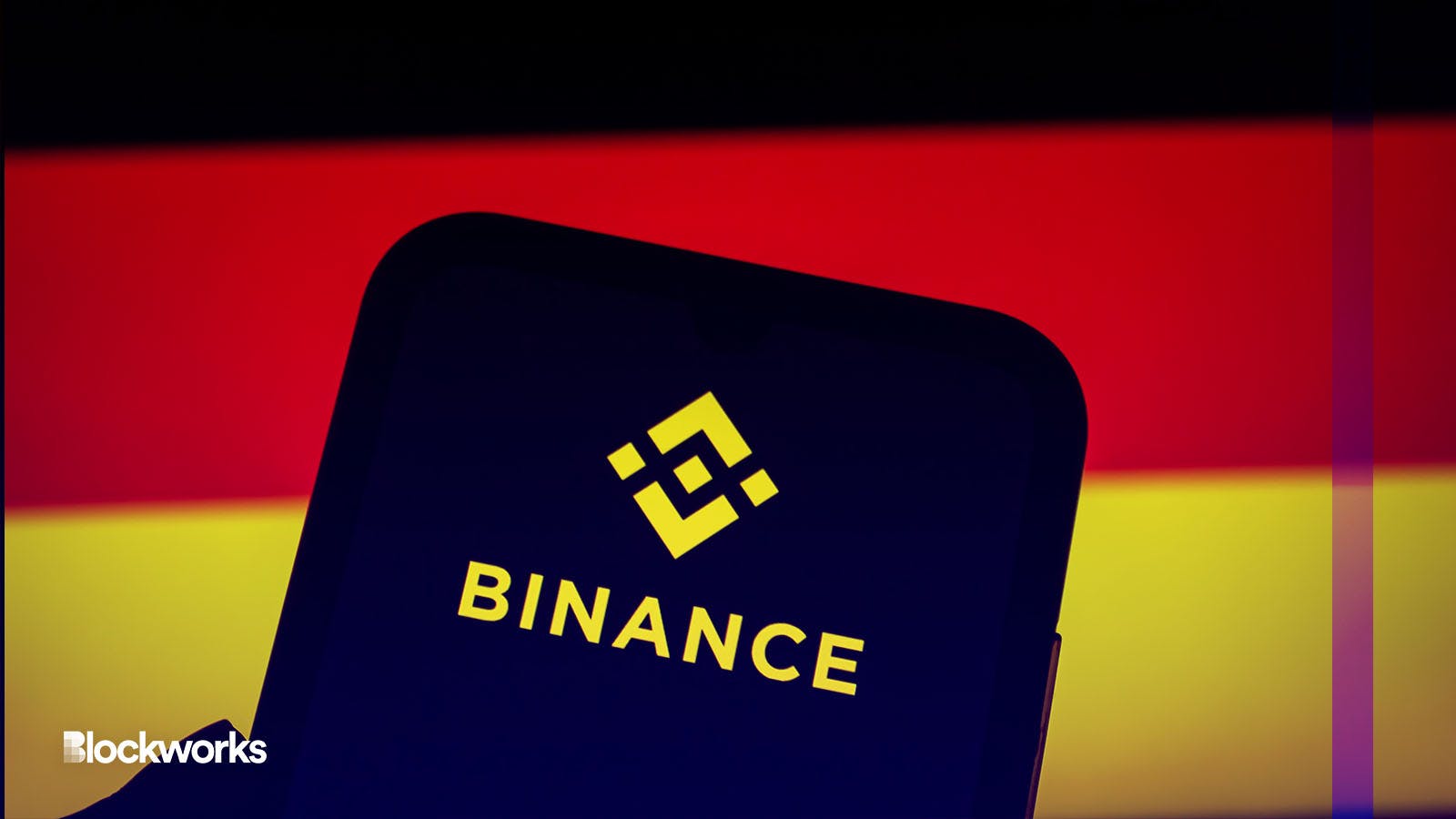Binance exits at least 3 European markets, prepares for MiCA
The cryptocurrency exchange has already left Germany, the Netherlands and Cyprus

Emre Akkoyun/Shutterstock, modified by Blockworks
Binance has withdrawn from multiple European countries due to registration difficulties.
The most recent country in question is Germany. Circumstances, both in the global market and regulatory landscape, led to the decision.
“Binance confirms that it has proactively withdrawn its BaFin application,” a spokesperson told Blockworks.
Last month, the country’s financial regulator BaFin declined to grant a license to Binance, adding to the regulatory challenges the company is facing in the region, per Finance Forward.
Jonas Jünger, the managing director of Binance in Germany, reportedly said his primary focus was to successfully establish a branch of the company in the country. He also mentioned that the regulatory prerequisites for accomplishing this goal were quite stringent.
The company plans to reapply once it has addressed the alterations in the regulatory landscape.
Additionally, Binance separately announced last month that it decided to exit the Netherlands.
From July 17 onwards, existing Dutch resident users no longer have the option to withdraw their assets from the platform. Any further purchases, trades or deposits are no longer permitted.
A company spokesperson told Blockworks that Binance had made efforts to explore alternative ways to cater to Dutch residents while complying with local regulations. However, these attempts did not lead to the registration as a virtual asset service provider.
Furthermore, Binance’s unit in Cyprus submitted an application to be delisted from the country’s register of cryptoasset service providers.
According to a spokesperson, Binance is working towards achieving compliance with the new European Union rule on digital assets called MiCA (Markets in Crypto-Assets Regulation) within the next 18 months.
In light of this goal, the decision was made to scale back operations in Cyprus and concentrate efforts on a smaller number of regulated entities within the EU, the company said.
The exits come at a time when Binance and CEO Changpeng Zhao are under scrutiny from US regulators, facing lawsuits from the Commodities Futures Trading Commission and the Securities and Exchange Commission.
The allegations involve the alleged evasion of derivatives and securities rules.
Recently, Binance announced its intention to file a motion to dismiss the lawsuit filed by the CFTC.
Binance still has a presence in Europe. While its holding company is situated in the Cayman Islands, Binance’s European headquarters are based in Paris, where it obtained registration from the French regulator AMF more than a year ago.
The primary focus will now be on larger registered markets where it already has a mature presence, notably in France, Italy and Spain. Elsewhere in the continent, it is also registered in Poland, Sweden and Lithuania.
“Binance still intends to apply for appropriate licensing in Germany,” Binance’s spokesperson said, noting the revised submission would reflect significant changes in the global market and regulation.
Get the news in your inbox. Explore Blockworks newsletters:
- The Breakdown: Decoding crypto and the markets. Daily.
- 0xResearch: Alpha in your inbox. Think like an analyst.






